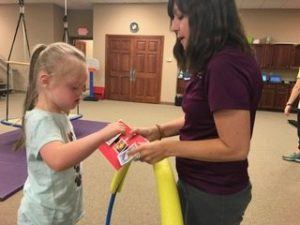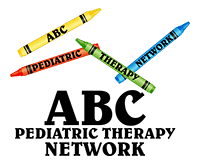How Communication Affects Frustration and Behavior
Frustration. We all experience moments of frustration, but the way in which we each handle our frustrations is very different and also very important. When children experience moments of frustrations it may include behaviors such as yelling, screaming, crying, hitting, etc. 
Does this sound familiar? Parents oftentimes feel overwhelmed and frustrated when their child is unable to communicate what is wrong or frustrating them and doing these undesirable behaviors. These frustrations and behaviors may actually be happening because your child is unable to effectively communicate to you what is wrong or what they want.
Let’s say you wake up in the middle of the night to your child crying and screaming. You are able to calm your child down, but they are still not able to tell you what is wrong with them. You know that something is wrong with your child, but you do not know the reason because your child cannot tell you; did they hit their head, have a bad dream, or are they sick? Only your child knows what is going on, but why won’t they tell you?
This type of situation can be both scary and frustrating for parents, but what can you do to help your child? Firstly, realize that children who have a difficult time communicating their wants/needs/ideas are more likely to become frustrated because their needs are not being met or they are not being understood. It is not necessarily that the child is trying to be bad, but that the child is so frustrated at not being able to communicate effectively that they communicate in the way that works for them which is the unwanted behavior. This decrease in communication and increase in frustration go hand-in-hand with children “acting out” or doing an unwanted behavior. When a child can effectively communicate their wants/needs/ideas, frustration and unwanted behaviors are more likely to decrease if the problem was an inability to communicate.
Secondly, make sure your child is on the right track developmentally with their speech and language.
Here are a few things to be on the lookout for:
· By 12 months of age, a child should begin making single words such as Mama, Dada, Doggie, Ball, Bye-bye, Hi, etc.
· By 24 months of age, a child should be using 2-word phrases frequently such as “bye-bye daddy”, “my ball”, “go potty” etc. and be able to identify basic body parts
· By 24 months of age, you should be able to understand approximately 50-75% of what a child is saying; you should be able to understand about half of what a child says.
· By 36 months of age, a child should be able to answer basic “wh” questions (e.g., “what’s your name”, “where does it hurt”, etc.) and be approximately 75% or more intelligible.
For more information on typical speech and language development in children up to six years of age, try our Interactive Screening Tool at checklist.abcpediatrictherapy.com.
If you notice that your child having a difficult time communicating, here are a few tips to try at home first:
· Use pictures or symbols that your child is familiar with. Have your child point to the picture or hand you the picture of what they are trying to communicate. Tell your child what you think their intention is and complete the task. For example, if your child points to the picture of the potty, say “Oh, you need to go potty. Let’s got to the potty” and take your child to the bathroom.
· Use basic hand signs and gestures with your child to help meet their basic wants/needs. Beginning signs to use with your child may include “more” and “all done.”
· Label items and objects with your child and talk about them.
· Incorporate music and play into your child’s daily activities.
· Talk and play with your child often. Children learn best through play and with other people face to face.
If your child’s communication skills do not begin to show improvement within a few weeks, it would be recommended to schedule a speech and language evaluation with your local Speech Therapist. For more information on speech and language development and speech therapy services, visit https://www.abcpediatrictherapy.com
 Skip to content
Skip to content